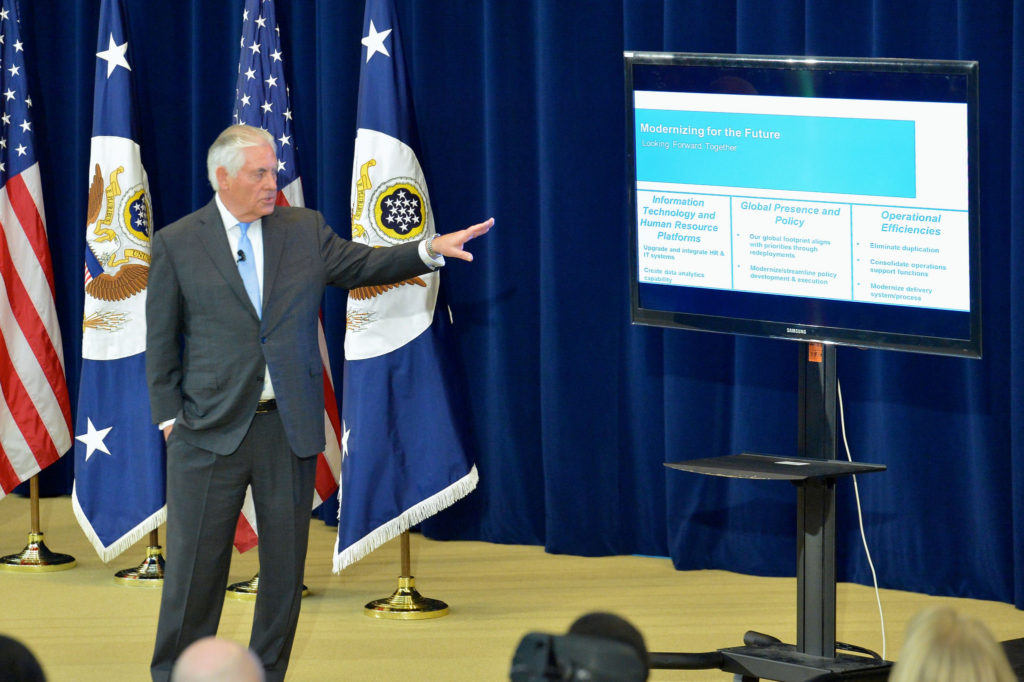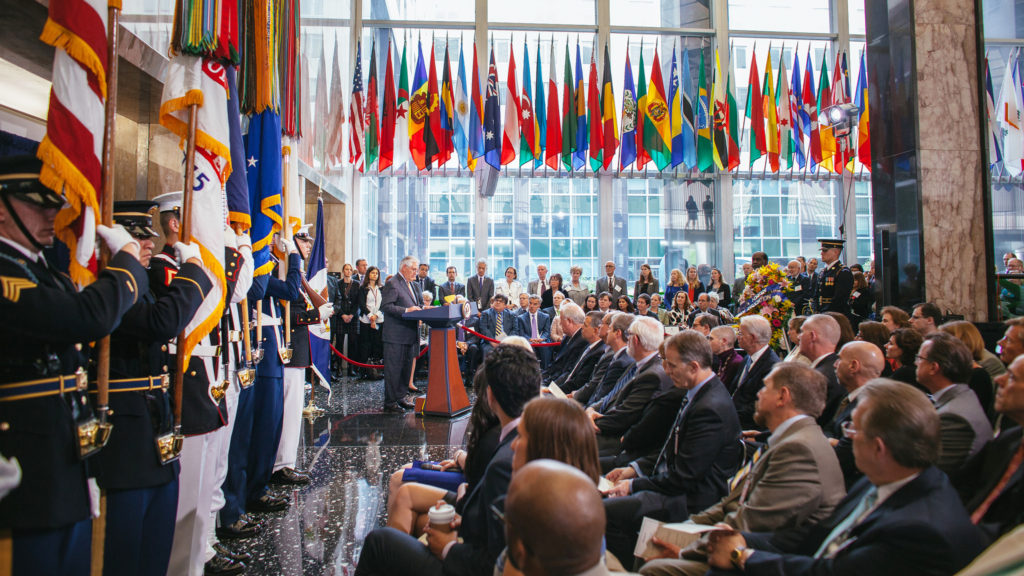The State Department’s Loss Is Corporate America’s Gain
 So what if many of America’s most senior career diplomats have been forced out by the Trump administration? Thousands of their former colleagues remain in the Foreign Service and are more than capable of getting the job done. This is what the administration, including the State Department leadership, has been saying for months.
So what if many of America’s most senior career diplomats have been forced out by the Trump administration? Thousands of their former colleagues remain in the Foreign Service and are more than capable of getting the job done. This is what the administration, including the State Department leadership, has been saying for months.
Even the departing diplomats, while lamenting the loss of longtime expertise, have taken solace in the talent and skills of the rising stars they left behind, as they have pointed out themselves at all-too-frequent retirement ceremonies in the past year.
It turns out, however, that many of those rising stars have recently concluded they are no longer wanted, understood and appreciated — and though they were years from retirement, most likely with brilliant careers ahead of them under normal circumstances, they resigned.

 President Trump doesn’t bother to hide his disdain for diplomacy. As he has made clear repeatedly, most recently during his Asia trip, in his book, compromising, seeking common ground and accommodating other countries are negatives that betray weakness. His concept of deal-making apparently has little to do with sustained and principled diplomacy, and he sees little value in institutional memory, long-term strategy and cultivating a complex web of relationships in favor of a transactional foreign policy based on the needs of the moment.
President Trump doesn’t bother to hide his disdain for diplomacy. As he has made clear repeatedly, most recently during his Asia trip, in his book, compromising, seeking common ground and accommodating other countries are negatives that betray weakness. His concept of deal-making apparently has little to do with sustained and principled diplomacy, and he sees little value in institutional memory, long-term strategy and cultivating a complex web of relationships in favor of a transactional foreign policy based on the needs of the moment. As Susan Johnson watched recently how Defense Secretary James Mattis spoke to a small group of American soldiers overseas, she admired his leadership and wished someone could do the same for the civilians on the front lines of national security in the U.S. Foreign Service.
As Susan Johnson watched recently how Defense Secretary James Mattis spoke to a small group of American soldiers overseas, she admired his leadership and wished someone could do the same for the civilians on the front lines of national security in the U.S. Foreign Service.
